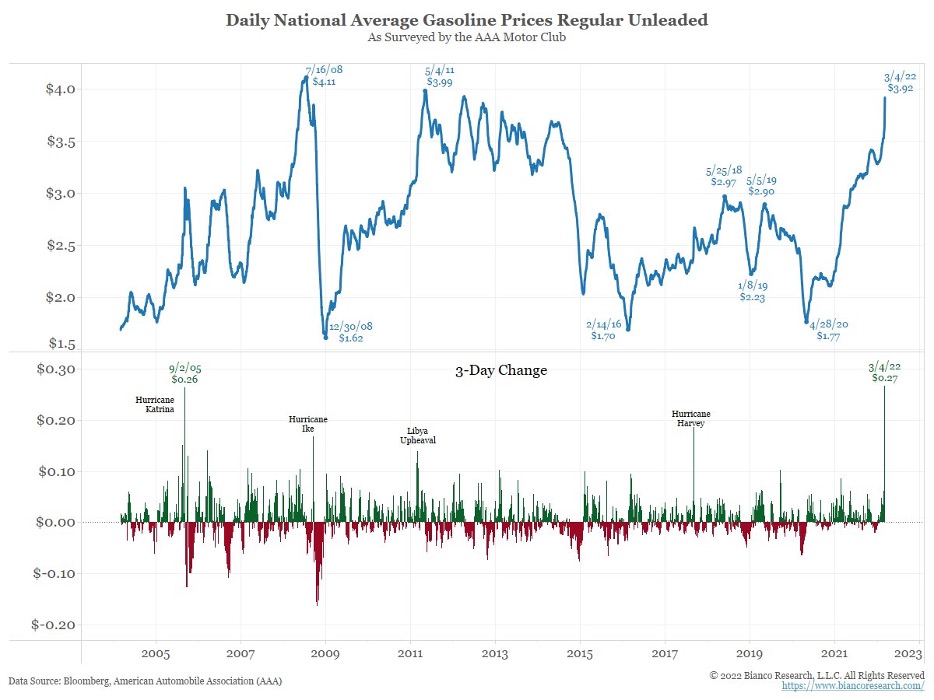High Gas Prices Accelerate Energy Evolution
Just as employers are stepping up return to office mandates, gasoline prices are the highest in eleven years. Consumer pain is a valuable behavioural catalyst.
(Click on image to enlarge)
Half of the Canadian respondents to a recent Leger poll survey said they were now using their vehicles less; one-third said they were looking to buy an electric vehicle. I can attest to this trend as people are approaching daily to ask about our electric cars. Yes, we charge them in our garage overnight for about $5.00, and they can go 400 km on a single charge. Yes, a shortage of nickel–an integral component of most lithium-ion batteries — is a hurdle. But that is why metals recycling and alternate battery types are seeing heavy investment globally.
Six years ago, think tank RethinkX’s co-founders Tony Seba and James Arbib correctly anticipated that Russia would become a geopolitical flashpoint in the 2020s. Read: How Energy Disruption Led to Russia-Ukraine Crisis – and How the Crisis Will Accelerate Disruption:
In 2016, Seba and Arbib told US military leaders that they would need to consider the probability of Russian aggression in the early-2020s. Seba’s projections showed that the acceleration of solar, wind, batteries, and EVs would make incumbent fossil fuel industries economically obsolete by 2030. The military and geopolitical systems these industries and countries are predicated on also become obsolete in the process. Countries primarily dependent on fossil fuel industries– and to perpetuate their internal political hierarchies–are at risk of resorting to traditional strategies of self-perpetuation and control to keep the cash flow going as long as possible.
350.org founder Bill McGibbon explains the opportunity and necessity in using the ongoing fossil fuel crisis to accelerate the transition to renewable energy in his latest article, In a world on fire, start burning things. He speaks directly to Canadians:
Canada has fossil-fuel reserves totalling a hundred and sixty-seven petawatt hours, which is a lot. (A petawatt is a quadrillion watts.) But, he said, it has potential renewable energy from wind and solar power alone of seventy-one petawatt hours a year. A reasonable question to ask Trudeau would be: What kind of country finds a windfall like that and simply leaves it in the sky?
McGibbon talked to the CBC’s Matt Galloway this week.
The Current with Matt Galloway https://t.co/GBka8dxQjB
— Danielle Park (@kdaniellepark) March 20, 2022
Nothing about this necessary transition is easy. A war effort is required, to be sure. But then, nothing about the status quo is easy, affordable or sustainable. We evolve or die.
Disclosure: None.





Good piece